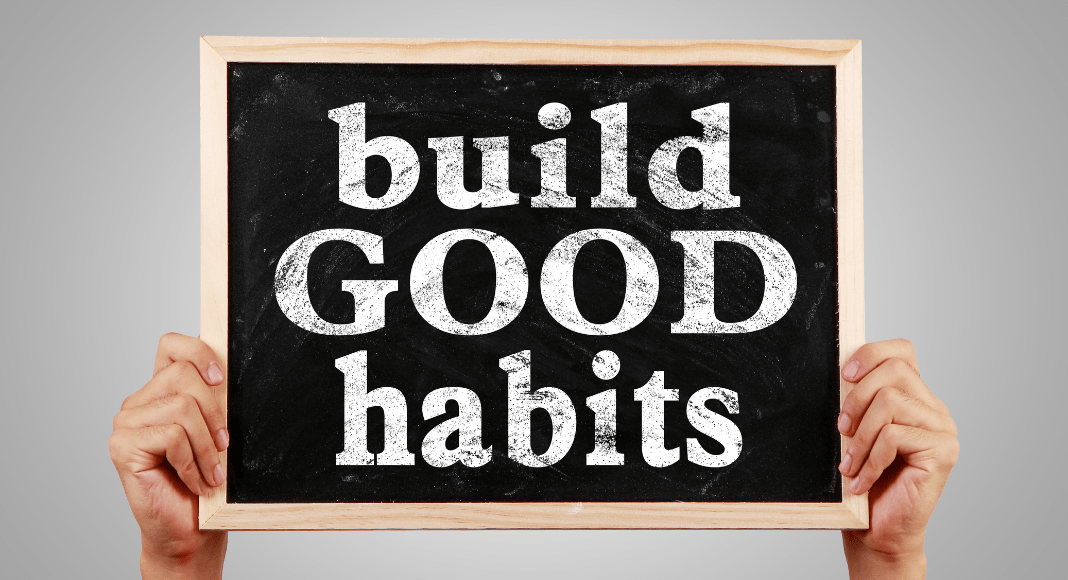 Children are the future, and the beliefs and daily practices they acquire when they’re young often stick with them for life. What are some good habits for children? How can you develop and encourage these in your kids? Spend some time in mindfulness exploring your deeply held core values. What is it you want to instill? What would you like to see more of in your local Kentucky community? The children will carry this torch, so think carefully. Then, learn how to develop good habits in a child to reinforce these core values. What should you consider? Here are 5 great habits to instill in your kids from a young age.
Children are the future, and the beliefs and daily practices they acquire when they’re young often stick with them for life. What are some good habits for children? How can you develop and encourage these in your kids? Spend some time in mindfulness exploring your deeply held core values. What is it you want to instill? What would you like to see more of in your local Kentucky community? The children will carry this torch, so think carefully. Then, learn how to develop good habits in a child to reinforce these core values. What should you consider? Here are 5 great habits to instill in your kids from a young age.
1. The Importance of Downtime
Do you battle with your children over naptime? There’s a better way that helps you develop the good habit of rest and reflection time in your child.
Instead of insisting on sleep, refer to this time as quiet play. By changing the wording, you transform this time of day from an unwanted chore to something many children look forward to with excitement.
Children require unstructured play time for their development, but it only sometimes involves the park or a play date. A good habit for children is to learn how to self-soothe — one way to do so is through quiet alone time. Once you establish this as a reward and not a punishment, helping your child modify their future behavior becomes easier.
For example, when you recognize your child getting dysregulated, you can suggest you both take a few minutes alone to cool down. This method works best if you model the behavior — “Mommy is pretty upset right now, so she’s going to take a little quiet time to soothe her nerves and then we’ll talk.”
2. The Joy of Moving Your Body
One of the best habits for children — and easiest to instill — is the joy of moving your body. Little kids instinctively love to skip and jump. It’s only between the teen years and adulthood that what was once a pleasure becomes a chore, but it doesn’t have to if you promote a love of exercise from a young age.
Doing so matters. Kentucky has the second-highest obesity rate in the nation and people in the U.S. are already heavier on average than other countries. You might already know weight doesn’t get easier to lose as you age, so instill good exercise habits in your children young.
3. That Self-Care Is Essential, Not Selfish
What is self-care? Does the term make you visualize a privileged socialite lounging about a luxury spa? Nonsense! The World Health Organization defines the term as practices that help promote good health and manage existing diseases. It includes things like:
- Making time for a healthy diet and exercise.
- Spending quality time with the community and loved ones.
- Tending to hygiene and grooming.
So often, people neglect self-care. What happens when you do? You aren’t functioning at your best and have less to give to others. You might become snappy and short, letting irritation and stress lead you to say things you don’t mean, all because you neglect to honor yourself.
Fortunately, it’s easy to teach these skills to your children, too. Establishing a bedtime ritual where they brush their teeth, wash their face and hands and spend a few quiet moments reflecting on their day is the perfect way to develop this good habit in your children.
4. How to Have a Healthy Relationship with Food
Food is much more than nourishment for many people. It also represents a way to bond with others and celebrate special occasions. Unfortunately, for some people, food becomes a means of comfort and dealing with stress, leading to soaring obesity rates.
Perhaps the best way for you to develop this good habit in your child is to examine your relationship with food. Do you use it as a comfort mechanism? If you do, expect your little one to do the same. Kids learn much more from imitation than they do from your words. Use this knowledge to seek the help you need if you need it.
5. How to Build Meaningful Relationships and Community
One of the most essential good habits to develop in your children is building meaningful relationships with friends, family and the broader community. The best way is to nurture a secure attachment in your relationship. This helps a kid feel safe in the world, allowing them to explore and grow safely. You can do so by:
- Consistency: Your behavior should be predictable. If you sometimes reward the same behavior you punish your child for when you’re in a different mood, they’ll feel like nothing they do is right or makes a difference. Doing so destroys their sense of agency — their belief that their actions can create positive change — leading to hopelessness and despair.
- Communication: Listen respectfully to your kids. Let them know their opinion matters, too. Allow them to learn from their mistakes, relying on logical consequences instead of harsh punishments.
- Consequence: Children should never fear their actions will result in abuse or neglect. Threatening corporal punishment or the deprivation of basic needs only inspires fear in your child, leading to a disorganized attachment style that will haunt their adult relationships.
Feeling connected to your larger community is equally vital. One way to develop this good habit for children is by participating in various charitable events for others. Does your lease say, “No dogs allowed?” Perhaps you can let your kids play with Fido as a volunteer dog walker for a local shelter. Is there a cleanup going down at a nearby park? Sign up to help and meet others while teaching your kids to care for the green places where they go to play.
How to Develop Good Habits in a Child
The habits you develop in your kids today will paint the future. What do you want it to look like?
If you want a kinder, healthier world, do your part to develop these good habits in your children. A better Kentucky begins at home.











